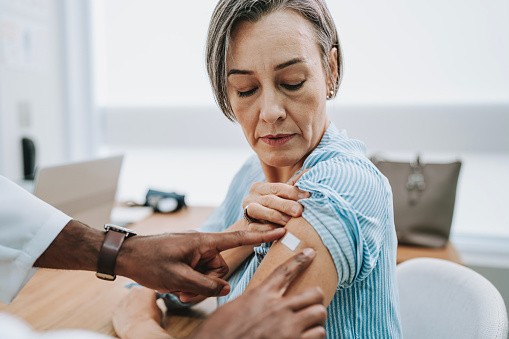
A new report by the World Health Organization (WHO) says innovative vaccines are being developed to treat dangerous human papillomavirus infections in adults and reduce risks of cervical cancer.
The Need for a Therapeutic HPV Vaccine
It is estimated that every 90 seconds, one woman dies from cervical cancer, while 342,000 women succumbed to it in 2020. That is why cervical cancer elimination is among the major public health activities undertaken by WHO.
Vaccines are available for prevention but not for treating HPV infections. HPV vaccines are only a decade old in Africa, and many have not been vaccinated or screened for cervical cancer.
The HPV vaccine prevents about 98% of infections, so it is crucial to the prevention of cervical cancer. Nevertheless, the HPV vaccine is of recent origin and is only now reaching large numbers of lower-income countries.
The available HPV preventive vaccine targets school-going children before they become sexually active. Moreover, most countries also offer it to boys since they can also be carriers and infect girls and women.
Vaccines have been the common prophylactics used to confer immunity to a person in case they are faced with a pathogen that causes deadly diseases. However, advances in immunotherapy are giving way to new waves of therapeutic vaccines used after an infection.
Therapeutic vaccines are now being developed to clear HPV or treat precancerous cells in those already exposed to the virus. It is expected to work by stimulating immune systems to fight a pathogen already inside the body.
According to Dr. Sami Gottlieb, an epidemiologist with the Department of Sexual and Reproductive Health and Research at WHO, increasing access to currently existing interventions is critical to enable the elimination of cervical cancer, which are timely screenings and lifesaving preventive vaccinations.
Gottlieb further indicated that therapeutic HPV vaccines could be a catalytic innovation offered to complement these efforts. They also provide options for millions of women who have already acquired HPV and reduce their risks of developing life-threatening cancer in the future.
Innovative Approach to Fighting Cervical Cancer
To ensure maximum public health benefits, WHO urged manufacturers to ensure these products are designed to be used not only in wealthier contexts but also in low- and middle-income countries, where over 90% of deaths related to cervical cancer occur.
More than 20 candidates of therapeutic HPV vaccines are under different phases of development. Many clinical trials are currently under process. The new report by the WHO is an effort towards standardization of the product among the existing developers so that vaccines would meet the global public health needs and can be rolled out rapidly in case of approval.
A therapeutic vaccine for HPV would complement all of the above-mentioned strategies for cervical cancer. Therapeutic vaccines enhance an immune response so that either high-risk strains of the virus are fought and cleaned or abnormal precancerous cells are attacked.
Such vaccines are particularly useful for adult women who were not vaccinated with HPV before they contracted the virus and in poorer countries where several millions of women still lack access to effective cervical screening and cancer treatments.
The target product profile also details the preferred characteristics of the HPV vaccines. Among these include the target population, immunization strategies, and safety and efficacy that may guide both researchers and manufacturers.
RELATED ARTICLE : HPV Vaccine Proven To Reduce Cancer Risk in Men, yet Fewer Boys Receive Shots in the US
Check out more news and information on HPV Vaccine in Science Times.
© 2025 ScienceTimes.com All rights reserved. Do not reproduce without permission. The window to the world of Science Times.










